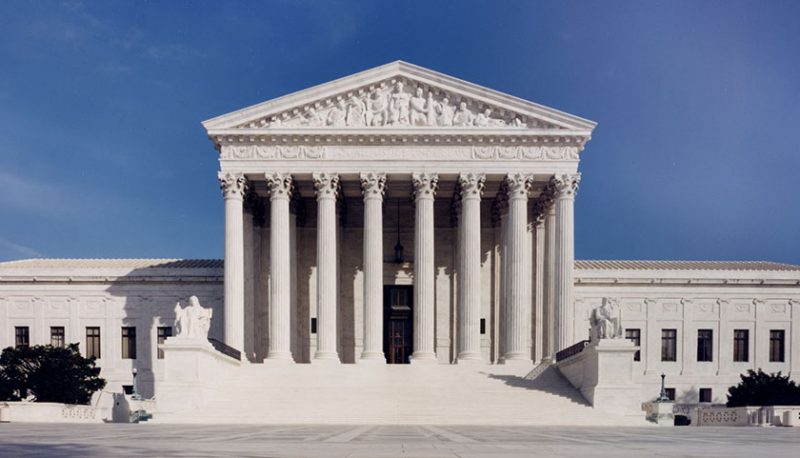“Confirmed Judges, Confirmed Fears” is a blog series documenting the harmful impact of President Trump’s judges on Americans’ rights and liberties. Cases in the series can be found by issue and by judge at this link.
Trump Third Circuit judge Stephanos Bibas wrote a decision that overruled a district court and agreed with the Trump Justice Department that an innovative drug treatment center in Philadelphia would violate a federal law designed to combat crack houses and is thus illegal and cannot be opened. The January 2021 ruling was in United States v. Safehouse.
It is estimated that almost three people die in Philadelphia every day of drug overdoses and that 1150 died from an overdose in 2019. In an effort supported by the Mayor of Philadelphia and public health advocates to combat this problem and the opioid crisis, the nonprofit Safehouse unveiled plans in 2018 to open an innovative drug treatment and prevention facility. As planned, it would provide drug treatment and counseling, offer primary medical care for problems suffered by drug users, distribute overdose reversal kits, exchange used syringes for clean ones, refer people for social services, and run clinics for HIV and Hepatitis C.
One aspect of Safehouse’s plan drew objection from the US Attorney in Philadelphia. Although it will discourage drug use and will not allow distribution of drugs to others on its property or store or handle drugs, it plans to have a room in which someone who wants to use drugs would be observed medically and would be “within immediate reach of urgent, lifesaving medical care” in case of overdose. The US Attorney filed suit in federal court for a declaratory judgment that this aspect of Safehouse’s plan would violate a federal law aimed at crack houses which, among other things, prohibits anyone from managing or controlling and “knowingly and intentionally” making available a “place…for the purpose of unlawfully manufacturing, storing, distributing or using a controlled substance.”
Safehouse counterclaimed for a declaratory judgment that its plan would not violate the crack house law, and the district court agreed with Safehouse. The judge ruled that people violate the law only if their purpose is for them or others to manufacture or misuse drugs on the premises, as in a crack house, but that Safehouse’s purpose was to “offer medical care, encourage treatment, and save lives” and “not to facilitate drug use.” The US Attorney appealed to the Third Circuit.
In a 2-1 opinion written by Trump judge Bibas, a Third Circuit panel reversed. Although he acknowledged Safehouse’s “benevolent motive” and that it “admirably” seeks to save lives, Bibas concluded that the use of a room for a safe-injection site violates federal law. He claimed this was because Safehouse allegedly “knows and intends” that some of those who use the room have the “purpose of doing drugs.” This is true, Bibas maintained, even though it would be third parties, not Safehouse itself, that would have the “purpose” of “using a controlled substance.” In other words, Bibas ruled that the federal law is violated if someone “knowingly and deliberately” allows “another person” to “use his property for drug activity.” Bibas’ opinion accordingly reversed the district court judgment, effectively blocking Safehouse from opening, unless it prevails on other arguments that had not been resolved, such as its claim that the government’s application of the law violates its rights under the Religious Freedom Restoration Act (RFRA).
Judge Jane Roth, who was nominated by President George H.W. Bush, firmly dissented. She began by explaining that the crack house law “cannot support” Bibas’ “novel construction” that the statute “criminalizes otherwise innocent conduct based solely on the ‘purpose’ of a third party” to violate criminal law by using drugs. She pointed out that the word “purpose” is used in an adjacent part of the law to refer to the purpose of the person charged with disobeying it, not a third party, so that Bibas’ interpretation “violates” basic principles of “statutory construction.” Roth also noted that Bibas’ view contradicts the law’s “legislative history,” pointing to a statement by then-Senator Biden that explained that in order to hold someone who promotes an event on their property liable under the law, the defendant must “not only know” that drug activity is occurring but also must have “the purpose of illegal drug use or distribution,” and such a promoter cannot be punished “for the behavior of their patrons.”
Judge Roth also explained that Bibas’ interpretation would lead to “absurd results.” For example, it could mean that parents could violate the law by “allowing their drug-addicted adult son to live and do drugs in their home” even if their “only purpose” was to “rescue him from an overdose.” It would “criminalize homeless shelters where the operators know that their clients will use drugs on the property.” And because the government claims that a “place” under the law must be “real property,” she went on, Safehouse could legally provide such a room “in a mobile van parked outside its facility,” an “absurd” result. The record does not contain “any evidence”, Roth also noted, that Safehouse believes or intends that the room “will facilitate drug use.” In short, Judge Roth voted to affirm the district court decision because Safehouse “does not have any of the purposes” prohibited by the law.
It is possible that Safehouse may prevail on its RFRA claims or that a new US attorney under the Biden Administration will properly interpret the federal drug law so that Safehouse can operate. As a result of Trump judge Bibas’ ruling, however, Safehouse cannot open because it would risk being in violation of federal criminal law.

